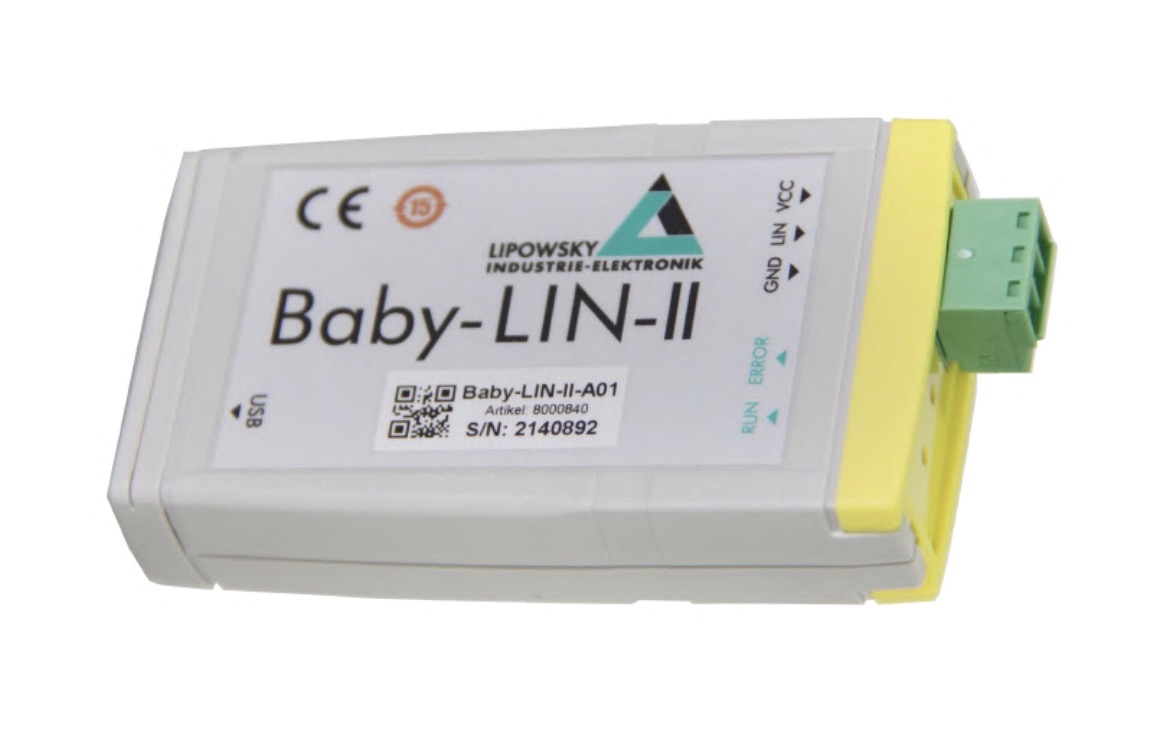Recent Posts
LIN Bus Simulation Device Controlled by Windows Software
Posted by on
The Baby-LIN-II by Lipowsky Industrie-Elektronik is a compact system for controlling a LIN BUS network via USB. The PC works as a LIN monitor, LIN Master, or LIN Slave. The system also supports operation in stand-alone mode and allows the execution of continuously running sequences without a PC. In addition, the galvanic isolation guarantees interference-free data transmission.
The scope of delivery includes:
- Baby-LIN-II Device
- USB 2.0 cabel, 1.5m (3 ft.), typ A to typ B-mini
- A 3-pole plug with screw connection (MC 1,5/ 3-ST-3,81)
- Download license for the LINWorks suite (includes LINWorks PC software, USB drivers, sample files and documentation)
Application examples include:
- Stand-alone mode with unrestricted programmable command sequences
- Usable with LINWorks software via USB on a PC
- Read and write frame data in real-time
- Supervise the LIN bus in the monitor function without an SDF present
- Data logging process possible at 100% bus workload
Technical Functionality:
- Supports LIN bus versions 1.2, 1.3, 2.0, 2.1 and 2.2
- Galvanically isolated LIN bus interface
- Simulation of LIN Master and LIN Slave nodes
- DTL (Diagnostic Transport Layer) support
- LIN bus controllable via DLL from own programs
- On-board voltages from 8 - 28 VDC
Teensy 4.0 CAN FD And LIN Bus Breakout Board
This is a CAN FD breakout board for use with the Teensy 4.0 (included in the scope of delivery). It has an onboard 5 VDC regulator with reverse voltage protection and a CAN FD transceiver. The Microchip MCP2004A chip provides the LIN Bus connection. The Teensy is a complete USB-based microcontroller development system compatible with Arduino software and libraries. It comes with a minimal footprint, capable of implementing many projects. All programming is accomplished via the onboard USB port.
 Loading... Please wait...
Loading... Please wait...


